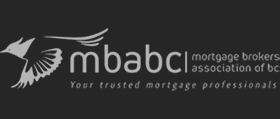 Vancouver buyers and borrowers are increasingly more sophisticated when it comes to real estate and mortgages. However, many bankers, brokers, and realtors are guilty of using industry jargon when talking about Real Estate with everyone, including even first time home buyers. Many people take to the internet to do some research, so this article will provide a definition of what some of the basics terms are in a contract and mortgage. While it is not an exhaustive list, it will provide some clarity as to what your mortgage broker or realtor is talking about so you can feel confident when dealing with them.
Vancouver buyers and borrowers are increasingly more sophisticated when it comes to real estate and mortgages. However, many bankers, brokers, and realtors are guilty of using industry jargon when talking about Real Estate with everyone, including even first time home buyers. Many people take to the internet to do some research, so this article will provide a definition of what some of the basics terms are in a contract and mortgage. While it is not an exhaustive list, it will provide some clarity as to what your mortgage broker or realtor is talking about so you can feel confident when dealing with them.
Completion Date – This is the date on the contract when the dollars and title to the home changes hands. It is NOT the date that you necessarily get access to the property. This is the date that your mortgage needs to fund, and when the physical ownership of the property changes hands.
Possession Date – This is the date when you get access to the new property. Typically, this is 1 day later than the completion date, though it can be the same day, earlier, or later depending on what works for everyone’s moving schedules, work schedules, and what you negotiate.
Adjustment Date – This is the date where all adjustments for property taxes, strata fees, and such take place. For example, if you bought a condo / strata property and it completes on the 16th of August with the 15th as the adjustment date, then when you complete you will have to pay the seller the condo fees from the 16th to 31st as the adjustment date is the 15th. It is a codified date that you negotiate and agree on for the accounting of all property taxes, strata fees, etc…
Addendum – This is a page or pages that are added to an original contract and typically contain modified terms or conditions of the offer. For example, if there is a price change because of a building inspection, it will often be changed in an addendum or “change to the contract” that is signed by all parties in most cases.
Subject – A subject to a contract is essentially a condition. For example, if you write an offer of $350,000 “subject to financing” then you are saying you will pay the seller $350,000 “conditional on my financing being approved.” Subjects typically have a date. For example, subject to financing being made available by July 30th. Then, by July 30th, you would have to provide an addendum to the contract that removes the condition and makes it a firm offer. If you do not “remove subjects” then you haven’t firmed up the contract and it isn’t binding on any party.
Deposit – Most contracts will require that once the buyer removes all subjects (thus it is a firm offer) that they provide a non-refundable deposit into the seller’s trust account. This deposit is just what is referred to as “good faith money” and is typically 5% of the purchase price. However, there is no law that it must be 5% and can be as low as you can negotiate. It is customarily 5% as this covers all real estate commissions and such should the deal collapse after the realtors have negotiated and done their job.
Down Payment – This is the total amount down that you intend to put from cash out of pocket. For example, if a property is $500,000 and you intend to put 20% down payment, then this is $100,000. If you paid 5% on deposit when you removes subjects, then you would have already paid $25,000 into trust, and you would need to pay $75,000 further for a total down payment of $100,000. You will typically provide this cash a day or two before the completion date, but it can be much earlier or as late as the actual completion date if needed.
Property Tax – These are annual taxes paid to the municipality for things such as garbage removal, water services, septic services, fire departments, etc… They are paid annually, although you can pay them monthly if you wish, and some lenders may insist on it.
Property Transfer Tax – Not to be confused with annual taxes, the Property Transfer Tax, is a one-time tax paid in BC at the time of purchasing your home. First time home buyers are often able to get a reduction or complete exemption depending on the purchase price of the home they are buying. Contact your mortgage professional for more details and to determine if you qualify for a reduction or complete exemption. The tax is calculated as 1% of the first $200,000 and 2% of the balance of purchase price. So, for a $500,000 the calculation would be:
$200,000 1% $2,000
$300,000 2% $6,000
TOTAL $8,000
You cannot “roll this into the mortgage.” You can reduce your amount of your down payment, however, so long as you still have the required 5% minimum cash down payment.
Bi-Weekly Payments – Payments made on your mortgage every 14 days. You make 26 payments per year under this structure.
Semi-Monthly Payments – Payments made on your mortgage on 1st and 15th or 15th and 30th. You make 24 payments per year under this structure.
Closed Mortgage – A mortgage that has a penalty when you break the term whether it be due to sale, refinance, divorce, or what have you.
Open Mortgage – A mortgage that has no penalty when paid out in part or in full for any reason. Open mortgages typically have higher rates than closed mortgages.
Loan-To-Value (LTV) – The percentage value of the home that is financed. For example, with 5% down payment, your LTV would be 95%. With 20% down, your LTV would be 80%.
CMHC Insurance – This is “mortgage default insurance” and it is insurance paid for by the borrower (added to the mortgage, not paid out of pocket) so that if anything goes wrong and the lender has to foreclose, they don’t lose any of their invested principle. It is for the benefit of the lender, not the borrower, and it is required on ALL purchases with less than 20% down payment regardless of bank and province.
While this is not an exhaustive list, it provides some based clarification of terms of a contract so that you can be confident you know what your realtor or mortgage broker is saying when discussing and negotiating with them.
 For any further questions, or to run you specific situation past me, call or email me at 604-657-6775 or rowan@citywidemortgage.ca
For any further questions, or to run you specific situation past me, call or email me at 604-657-6775 or rowan@citywidemortgage.ca
For more information about Rowan click here





